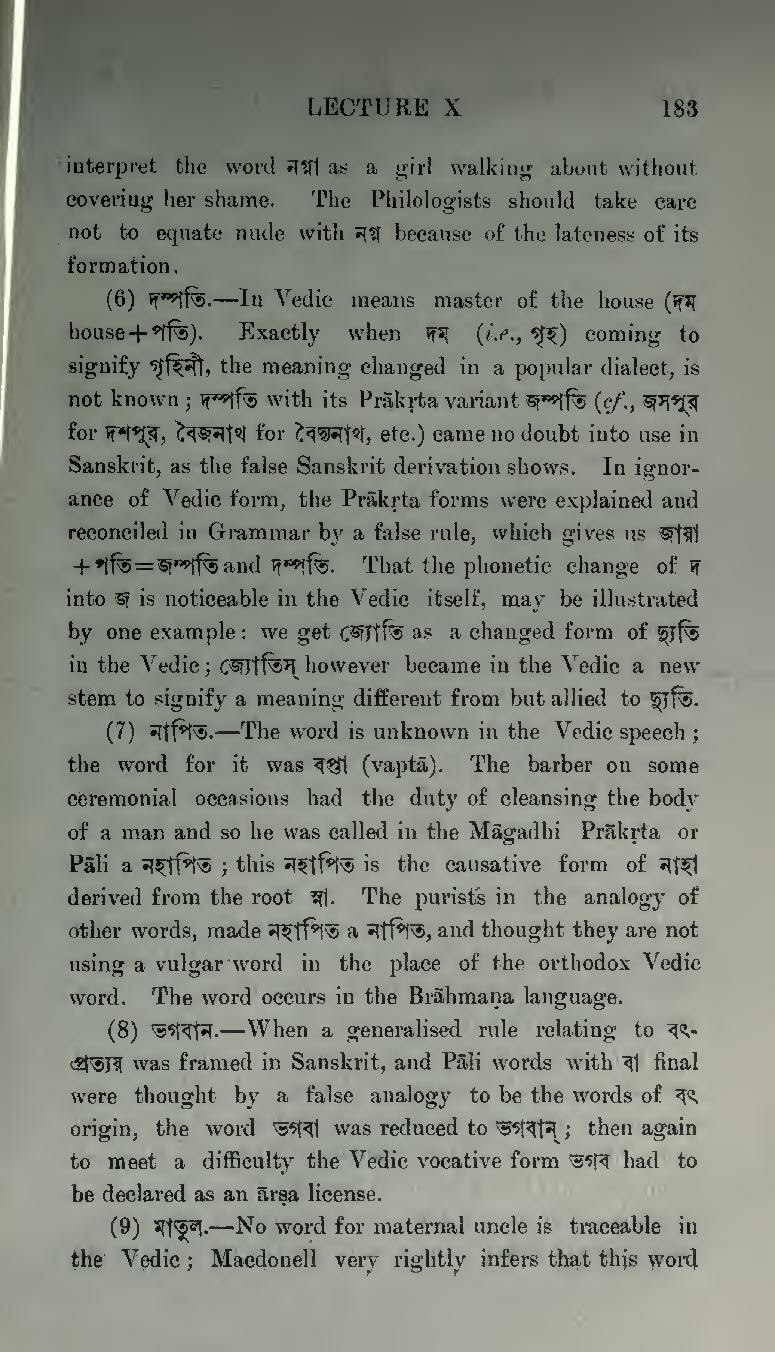interpret the word নগ্না as a girl walking about without covering her shame. The Philologists should take care not to equate nude with নগ্ন because of the lateness of its formation.
(6) দম্পতি.—In Vedic means master of the house (দম house + পতি). Exactly when দম (i.e., গৃহ) coming to signify গৃহিনী, the meaning changed in a popular dialect, is not known ; দম্পতি with its Prākṛta variant জম্পতি (cf., জসপুর for দশপুর, বৈজনাথ for বৈদ্যনাথ, etc.) came no doubt into use in Sanskrit, as the false Sanskrit derivation shows. In ignorance of Vedic form, the Prākṛta forms were explained and reconciled in Grammar by a false rule, which gives us জায়া + পতি = জম্পতি and দম্পতি. That the phonetic change of দ into জ is noticeable in the Vedic itself, may be illustrated by one example: we get জ্যোতি as a changed form of দ্যুতি in the Vedic; জ্যোতিস্ however became in the Vedic a new stem to signify a meaning different from but allied to দ্যুতি.
(7) নাপিত.—The word is unknown in the Vedic speech; the word for it was বপ্তা (vaptā). The barber on some ceremonial occasions had the duty of cleansing the body of a man and so he was called in the Māgadhi Prākṛta or Pāli a নহাপিত; this নহাপিত is the causative form of নাহা derived from the root স্না. The purists in the analogy of other words, made নহাপিত a নাপিত, and thought they are not using a vulgar word in the place of the orthodox Vedic word. The word occurs in the Brāhmaṇa language.
(8) ভগবান.—When a generalised rule relating to বৎ-প্রত্যয় was framed in Sanskrit, and Pāli words with বা final were thought by a false analogy to be the words of বৎ origin, the word ভগবা was reduced to ভগবান্; then again to meet a difficulty the Vedic vocative form ভগব had to be declared as an ārṣa license.
(9) মাতুল.—No word for maternal uncle is traceable in the Vedic; Macdonell very rightly infers that this word
